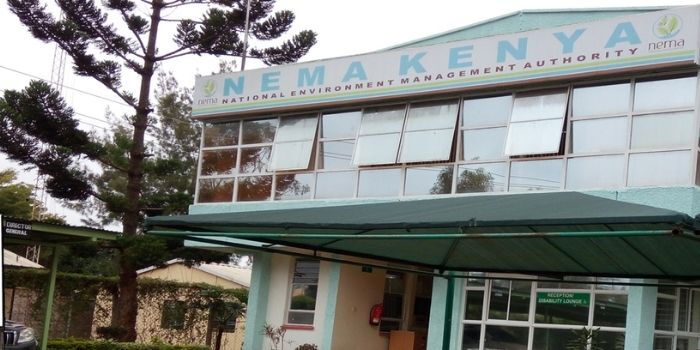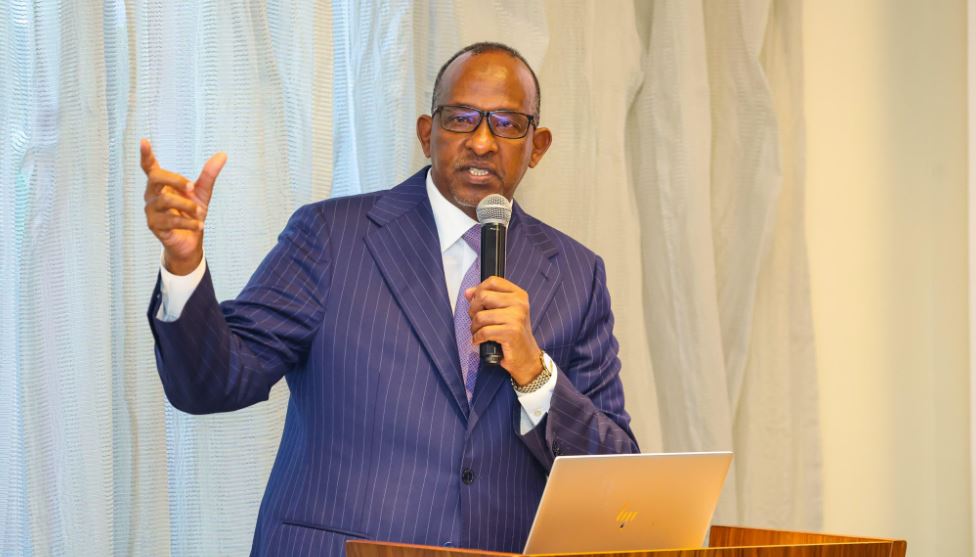The National Environment Management Authority (NEMA) on Monday issued restoration orders to 145 companies in Nairobi after an extensive crackdown on pollution in the city’s rivers. The companies, identified through a surveillance operation, were found to be responsible for polluting Nairobi’s waterways, posing significant health risks to city residents.

Key Highlights:
- NEMA issues restoration orders to 145 companies for river pollution in Nairobi.
- Companies are required to clean up their waste under the Extended Producer Responsibility (EPR) scheme.
- Environment CS Aden Duale leads the Nairobi River ecosystem restoration initiative.
Speaking during an event named Nairobi River Ecosystem Restoration through Climate Worx Mtaani, Environment Cabinet Secretary Aden Duale emphasized the urgency of addressing river pollution in Nairobi. He engaged with industry leaders on the Extended Producer Responsibility (EPR) policy, which aims to make producers accountable for the entire lifecycle of their products, especially when they cause environmental harm.

“In the unlikely event that the product continues to cause pollution, this will trigger the need for NEMA and the producers to engage in a discussion with an intention to ban that product or packaging,” Duale stated.
Under the restoration orders, the 145 companies are required to clean up their waste, which includes plastic bottles, papers, faecal waste, solid waste, and even radioactive substances. These waste products have been contributing to the degradation of Nairobi’s rivers, affecting not only the environment but also public health.
Extended Producer Responsibility (EPR) Enforcement
EPR is a waste management policy designed to push companies towards creating more sustainable, recyclable products. Through the EPR framework, producers are now being compelled to re-evaluate their product designs and packaging to ensure they are environmentally friendly. Duale, addressing the industry players, emphasized, “EPR requires you to rethink the products you introduce into the Kenyan market to ensure they are safe.”
As part of the initiative, Producer Responsibility Organisations (PROs) have been tasked with buying back waste from consumers and waste pickers. This marks a significant step towards reducing environmental pollution, as waste pickers will now receive compensation for their efforts in collecting waste.
Government Threatens Tough Action
CS Duale also announced the recruitment of 10,000 youths to support the cleanup of the polluted Nairobi River. He reiterated the government’s stance on pollution, warning that companies failing to comply with the restoration orders would face severe consequences, including the revocation of their business licenses. Earlier in August, CS Duale directed NEMA to crack down on factories and companies dumping waste into the city’s rivers.
The crackdown on the 145 companies follows a similar order in February, when NEMA directed 29 companies to clean up Nairobi’s rivers. The government has remained firm in its position, with Duale stressing that the ongoing pollution of Nairobi’s waterways will no longer be tolerated.
READ ALSO: DEPUTY PRESIDENT RIGATHI GACHAGUA ASKS PRESIDENT RUTO TO FORGIVE HIM
The restoration orders form part of the broader Nairobi River rehabilitation program, aimed at restoring the health of the river and making it a clean and safe environment for the city’s residents.
